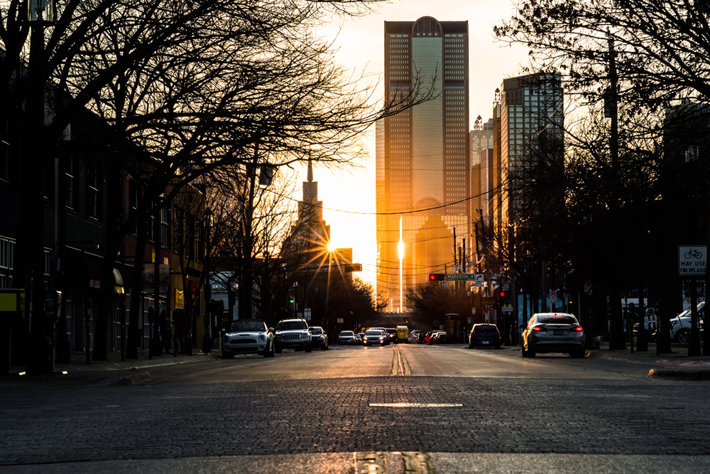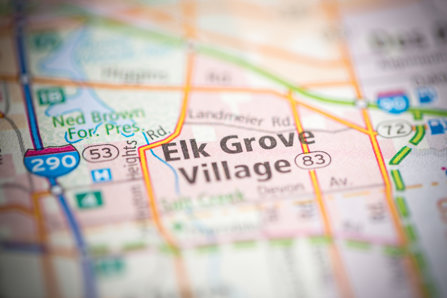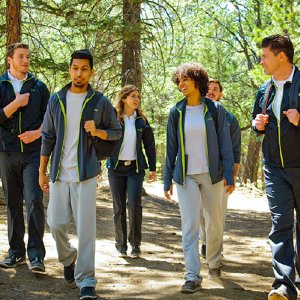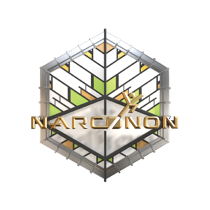How Communities Can Create a Safe Environment for Addiction Recovery

For decades, the War on Drugs, part of a punitive, incarceration-based system has been the state and federal approach to crimes of drug possession and drug use. But a recent story in USA Today talked about a community in the Chicago area that is offering an olive branch to addicts. The town is called Elk Grove Village, a city of about 32,000 people.
In a nation where drug addiction rises to the top of the list for major health concerns, one community is stepping forward and saying that they will no longer criminalize drug use. What can we learn from Elk Grove Village? And how can we apply a similar commitment and act of solidarity to our own communities?
One City in Northern Illinois Makes a Bold Move Forward

Elk Grove Village has been hit especially hard by the opiate crisis. This region suffered 16 opioid overdose deaths in a relatively short period. To combat the drug problem, Elk Grove Village created a new ruling within its city limits. Beginning on September 16th, 2019, Elk Grove Village would no longer pursue criminal cases against addicts who come forward seeking help.
In fact, the Elk Grove Village policymakers decided that even if addicts have illegal drugs or paraphernalia on them when they come forward, the city will still refrain from arresting such individuals. Instead, Elk Grove Village municipal workers and police officers will work to help such individuals find and get into treatment programs.
Elk Grove Village Mayor Craig Johnson has promised to offer drug treatment to city residents who are not able to pay for it. The goal of the program is to get addicts into treatment. Up until this point, addicts had been arrested for drug use and drug possession in this city. The constant repetition of arrests was nothing more than a revolving door for addicts. It was time to create an approach that would help addicts.
The new rulings in Elk Grove Village also include getting local businesses involved. Such is done by handing out Narcan kits to business owners and educating the owners and staff in their use. Those efforts should serve to reduce the number of overdoses in the community.
Effectively, Elk Grove Village is stepping up its efforts to help its residents overcome drug problems. With the use of Narcan, community members will be saving lives by preventing fatal overdoses. And with the pro-treatment stance that the city has taken, such overdose survivors and other drug users now have a far better recourse than that of a lonely jail cell.
What Can Communities Do to Make Treatment More Available?
Elk Grove Village has the right idea in its efforts to reduce deaths and treat addicts. And other cities are beginning to do the same.
But overall, the nation is slow to change its ways of addressing drug addiction. For decades, America has approached addiction and drug use as a crime, something that should lead to incarceration and a criminal record. Slowly but surely, that viewpoint is changing. Finally, some regions of the U.S. are beginning to see drug use as a public health issue, not a criminal matter. But those regions are still in the minority.
In a nation that still mostly views drug use as a crime requiring punishment, what can individual communities do to create a safe environment for addicts to get help?
- For one, following the model set by Elk Grove Village would be a start. Cities and communities should come forward and openly declare that no criminal action will be taken against addicts who admit to a drug problem and ask for help.
- Perhaps the most critical effort that communities can take is to ensure that treatment is available. A lack of treatment availability is one of the main reasons why addicts do not get the help that they need. According to former Surgeon General Vivek Murthy, of those who struggle with addiction, only about ten percent of them will receive treatment for it. Communities must see to it that treatment is made available.
- But how does a community make treatment more available? A few options come to mind. One involves raising money to fund addicts going through rehab. That can be done through bake sales, rallies, raffles, marches, fundraising events, auctions, etc.
- Another approach is to have community members start a treatment center. That can be quite the commitment, but a community free of drug use is more than worth the effort.
- Yet another approach would be to petition local or state governments to fund a rehab center within the community. Every dollar invested in viable treatment options saves four dollars in health care costs and seven dollars in criminal justice costs. Put that way; funding treatment centers is not only the humanitarian thing to do; it is also the financially sensible thing to do.
- Last but not least, communities need to extend an olive branch to struggling addicts. Cities need to get the message out that drug addiction is not a crime. Communities need to say, very loudly, that they will no longer incarcerate addicts. They need to say that they will help addicts get better through treatment.
If Your Loved One is Struggling with an Addiction

If you know someone who is struggling with drug addiction, you should do your best to help them get into a residential drug and alcohol addiction treatment center. A jail cell is not going to help your loved one get better. The only way for an addict to make real positive change in their lives is to enter treatment.
If you know someone who needs help, make sure they get it. It will be the best approach for them, for you, for your family, and for the community as a whole.
Sources:
- https://www.usatoday.com/videos/news/nation/2019/09/16/community-offers-help-opioid-addicts/2343103001/
- https://www.usatoday.com/story/news/nation-now/2016/11/17/surgeon-general-1-7-us-face-substance-addiction/93993474/
Reviewed and Edited by Claire Pinelli, ICAADC, CCS, LADC, RAS, MCAP


